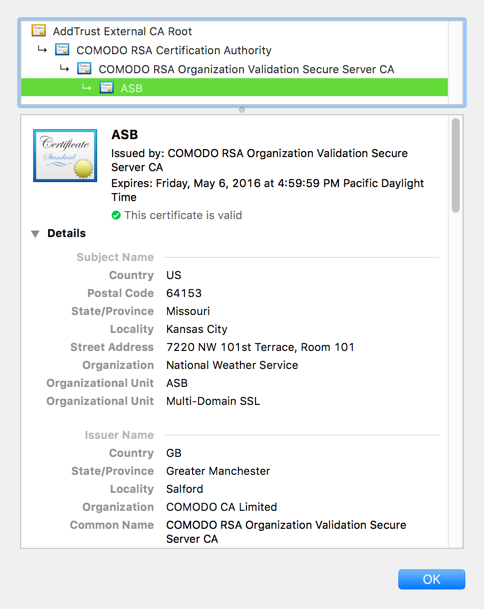I'm testing a plugin on HostGator, GoDaddy, DreamHost and DigitalOcean, developing locally with VVV. I'm running WordPress 4.4.2 across the board.
I'm using wp_remote_get() to retrieve weather data from NOAA's Text Data Server using 3 different endpoints. I ran into trouble when I extended testing to another host, Arvixe, where I was getting a 400 Bad Request error for my third endpoint. The others work fine.
I discovered setting the sslverify arg to false in the request "fixed" the issue on this host but I'm unclear as to why, and if that is actually a good thing. The plugin merely displays data pulled from NOAA but disabling verification like this seems unnecessary and wrong.
The odd thing is, I have written wp-cli commands for this plugin and they work as expected, using the same classes and method without errors. Command line PHP on this host is v5.5 and I've tested WordPress using PHP 5.3 - 7.0 with the same results.
Searching further I read an answer given by Otto that has me wondering if I'm looking in the wrong place for a solution.
I really appreciate any help figuring out what the real underlying problem could be.
Any thoughts or suggestions?
More details: The site on Arvixe is http The other testing sites are a mix of http/https, with no errors. The cert is valid


https://aviationweather.gov/adds/dataserver_current/httpparam?dataSource=aircraftreports&requestType=retrieve&format=xml&radialDistance=100%3B-76.100000%2C43.120000&hoursBeforeNow=4Another post(old) discussing this